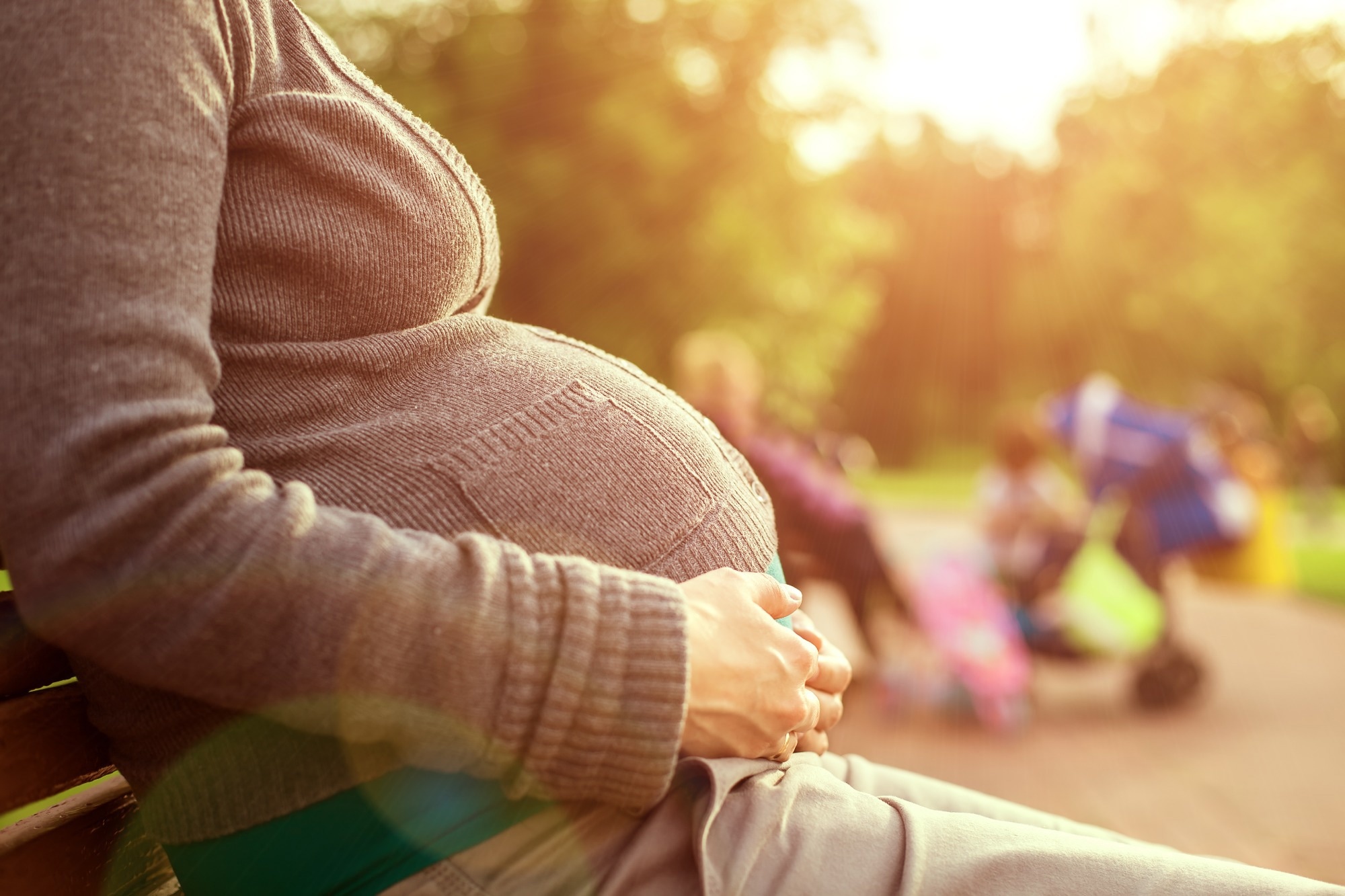Effects of COVID-19 quarantine on outcomes in individuals with intrahepatic cholestasis of pregnancy

A recent study published in Frontiers in Medicine evaluated the effects of coronavirus disease 2019 (COVID-19) quarantine on outcomes in individuals with intrahepatic cholestasis of pregnancy (ICP).
 Study: Rational use of drugs to alleviate adverse outcomes caused by COVID-19 quarantine in women with intrahepatic cholestasis of pregnancy. Image Credit: Coffeemill/Shutterstock.com
Study: Rational use of drugs to alleviate adverse outcomes caused by COVID-19 quarantine in women with intrahepatic cholestasis of pregnancy. Image Credit: Coffeemill/Shutterstock.com
Background
COVID-19 has been linked to adverse health outcomes, such as neurologic, pulmonary, and cardiovascular sequelae. ICP is a liver disease characterized by pruritus, elevated bile acids, and jaundice.
Although ICP symptoms typically subside after delivery, the probability of relapse in subsequent pregnancies is high. ICP elevates the risk of maternal hepatobiliary diseases, leading to adverse perinatal outcomes.
The quarantine mandates during the COVID-19 pandemic led to unhealthy habits of eating and physical activity. Additionally, quarantine might have increased maternal depression and mental health issues, and it has been detrimental to antenatal care, leading to delayed diagnoses and missed treatments.
Further, it is speculated that ICP incidence increased during the pandemic due to quarantine mandates, resulting in more adverse outcomes.
About the study
In the present study, researchers evaluated the effects of quarantine on pregnancy outcomes in individuals with ICP. Pregnant individuals with ICP who underwent stringent home quarantine for at least two weeks from January 24, 2020, to April 20, 2020, in southwest China, were included. Besides, pregnant individuals with ICP from 2018, 2019, and 2021 served as controls.
Individuals were excluded if they were diagnosed with COVID-19. Electronic medical records were accessed to obtain demographic data and maternal and neonatal outcomes. Maternal outcomes included gestational diabetes mellitus (GDM) A1 or A2, hypertension, delivery mode, preeclampsia, postpartum hemorrhage, placenta accreta spectrum, oligohydramnios, and polyhydramnios.
Neonatal outcomes were small for gestational age, macrosomia, preterm birth, congenital malformation, low Apgar score, fetal distress, chromosomal abnormalities, umbilical cord factors, fetal growth restriction (FGR), stillbirth, and admissions to the neonatal intensive care unit.
Univariate logistic regression analyzed maternal and neonatal outcomes between groups. Sub-group analyses were performed in the quarantine group based on using medicines for ICP treatment.
Findings
115,374 pregnant individuals were identified during 2018-2021, including 27,950 quarantined subjects.
Of these, 816 individuals with ICP were included in the quarantine group, and 2345 served as controls. Individuals in the quarantine group were more likely to gain weight and less likely to develop itching than controls. Overall, a third of individuals used medicines for ICP.
The proportion of individuals using ICP medication was lower in the quarantine group than in the controls. There were no differences in maternal or gestational age, parity, body mass index (BMI), alcohol intake, ICP severity, history of assisted reproductive technology, or hepatobiliary diseases between quarantined individuals and controls. Quarantined subjects exhibited significantly higher risks of GDM A1, preeclampsia, placenta accreta spectrum, and postpartum hemorrhage.
Among neonatal outcomes, the quarantine group had higher risks of FGR, preterm delivery, and low birth weight. They also had elevated levels of bile acids at delivery than controls.
Quarantined subjects who did not use medicines for ICP treatment (non-medication sub-group) were at a higher risk of preeclampsia and polyhydramnios than those treated with drugs (medication sub-group). Neonates in the non-medication sub-group were likelier to have abnormal umbilical cord factors and preterm delivery.
The medication sub-group exhibited lower levels of bile acids, total bilirubin, and alanine transaminase at delivery than the non-medication sub-group.
Ursodeoxycholic acid and polyene phosphatidylcholine were the most used drugs for ICP treatment. Five stillbirths were recorded in the quarantine group and four among the controls. Three neonatal deaths occurred in the quarantine group, compared to one among controls.
Conclusions
In sum, pregnant individuals with ICP who were home-quarantined during the COVID-19 pandemic were likelier to gain weight, presumably due to the changes in exercise and diet habits, and less likely to experience itching. The quarantine group had increased risks of postpartum bleeding and placenta accreta spectrum than controls.
Quarantined individuals showed an increased incidence of FGR, preterm delivery, and low birth weight. The medication sub-group among quarantined individuals treated showed reduced preeclampsia, polyhydramnios, and neonatal intensive care risks.
They usually exhibited higher levels of bile acids and intense itching, which were reduced at delivery, possibly due to treatment, suggesting that rational use of drugs to treat ICP may lower risks.
Cai, Q. et al. (2023) "Rational use of drugs to alleviate adverse outcomes caused by COVID-19 quarantine in women with intrahepatic cholestasis of pregnancy", Frontiers in Medicine, 10. doi: 10.3389/fmed.2023.1122873. https://www.frontiersin.org/articles/10.3389/fmed.2023.1122873/full
Posted in: Medical Science News | Medical Research News | Medical Condition News | Women's Health News | Disease/Infection News | Healthcare News
Tags: Alanine, Alcohol, Bile, Birth Weight, Bleeding, Body Mass Index, Coronavirus, covid-19, Depression, Diabetes, Diabetes Mellitus, Diet, Drugs, Electronic Medical Records, Exercise, Gestational Diabetes, Intensive Care, Intrahepatic Cholestasis of Pregnancy, Jaundice, Liver, Liver Disease, Medicine, Mental Health, Neonatal Intensive Care, Oligohydramnios, Pandemic, Physical Activity, Placenta, Pregnancy, Pruritus, Stillbirth, Technology, Umbilical Cord

Written by
Tarun Sai Lomte
Tarun is a writer based in Hyderabad, India. He has a Master’s degree in Biotechnology from the University of Hyderabad and is enthusiastic about scientific research. He enjoys reading research papers and literature reviews and is passionate about writing.